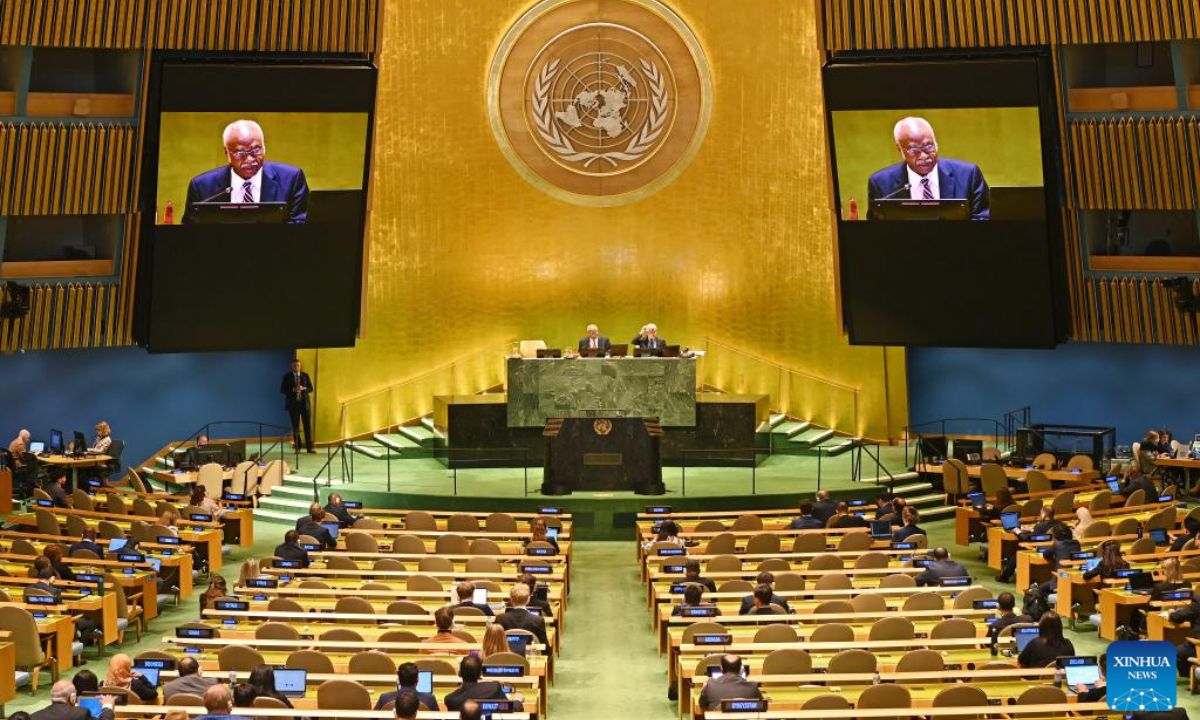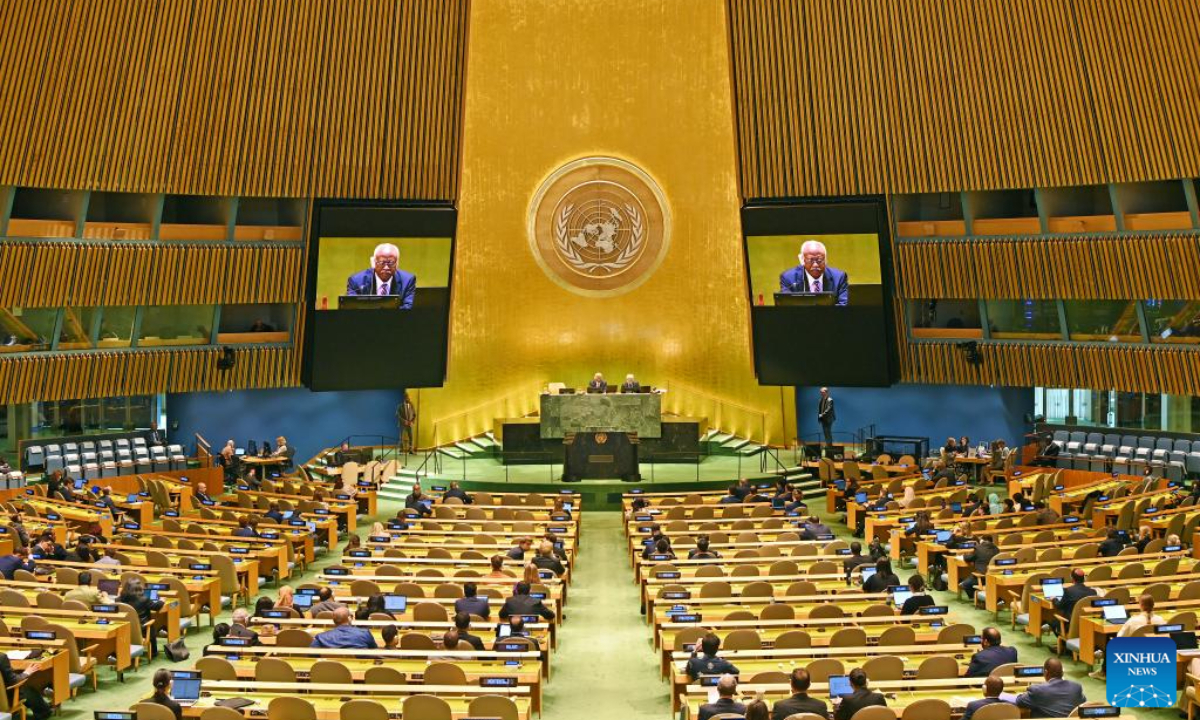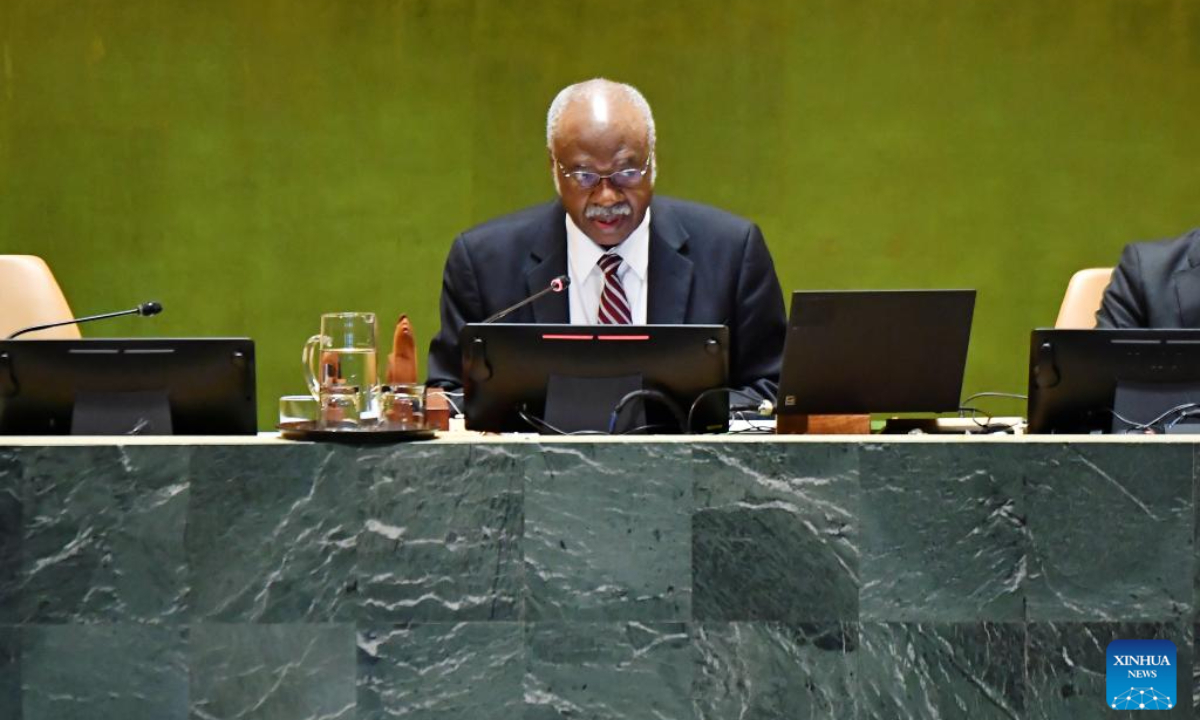
UNGA President Philemon Yang (C and on the screens) delivers concluding remarks during the General Debate of the 79th session of the United Nations General Assembly (UNGA) at the UN headquarters in New York, on Sept. 30, 2024. The General Debate of the 79th session of the United Nations General Assembly (UNGA) concluded on Monday, with UNGA President Philemon Yang calling on Israel, Hamas and Hezbollah to urgently conclude a ceasefire. Photo:Xinhua

UNGA President Philemon Yang (C and on the screens) is seen during the General Debate of the 79th session of the United Nations General Assembly (UNGA) at the UN headquarters in New York, on Sept. 30, 2024. The General Debate of the 79th session of the United Nations General Assembly (UNGA) concluded on Monday, with UNGA President Philemon Yang calling on Israel, Hamas and Hezbollah to urgently conclude a ceasefire. Photo:Xinhua

UNGA President Philemon Yang delivers concluding remarks during the General Debate of the 79th session of the United Nations General Assembly (UNGA) at the UN headquarters in New York, on Sept. 30, 2024. The General Debate of the 79th session of the United Nations General Assembly (UNGA) concluded on Monday, with UNGA President Philemon Yang calling on Israel, Hamas and Hezbollah to urgently conclude a ceasefire. Photo:Xinhua
The General Debate of the 79th session of the United Nations General Assembly (UNGA) concluded on Monday, with UNGA President Philemon Yang calling on Israel, Hamas and Hezbollah to urgently conclude a ceasefire.
In his concluding remarks, Yang said the world has seen an extremely dramatic escalation of violence between Israel and Hezbollah in Lebanon in the past few days, warning that escalation risks causing war in the entire Middle East region.
"As we speak, peace in the Middle East is hanging delicately on a shoestring! There is pervasive tension and uncertainty in the region," he said.
"The world must not allow an all-out war to happen in this volatile region," he stressed.
Yang called on all those with influence on the parties to demand an immediate ceasefire and dialogue, and urged all states supplying weapons to the region to desist from such actions and "give peace a chance."
Emphasizing that negotiations and diplomatic solutions must take precedence over brutal force, he said the Charter of the United Nations instructs that member states settle their disputes peacefully, so as not to endanger international peace and security.
During the last day of the General Debate, many speakers denounced Israel's military actions in Gaza and Lebanon, and called for an immediate cessation of hostilities.
In his statement, Syrian Foreign Minister Bassam Sabbagh condemned Israel's aggression against the Palestinian people, stressing "the need to hold Israel accountable for the war crimes it is committing."
Valdrack Ludwing Jaentschke Whitaker, minister for foreign affairs of Nicaragua, warned that the world is not on a journey to peace. "We denounce and condemn the genocide that the government of Israel and its 'First World' allies have committed, commit and continue to commit" against the people of Palestine and the people of Lebanon, he said.
A total of 193 leaders delivered speeches during the General Debate that started on Sept. 24, including 71 heads of state, 42 heads of government, 6 vice presidents and crown princes, and 8 deputy prime ministers.
